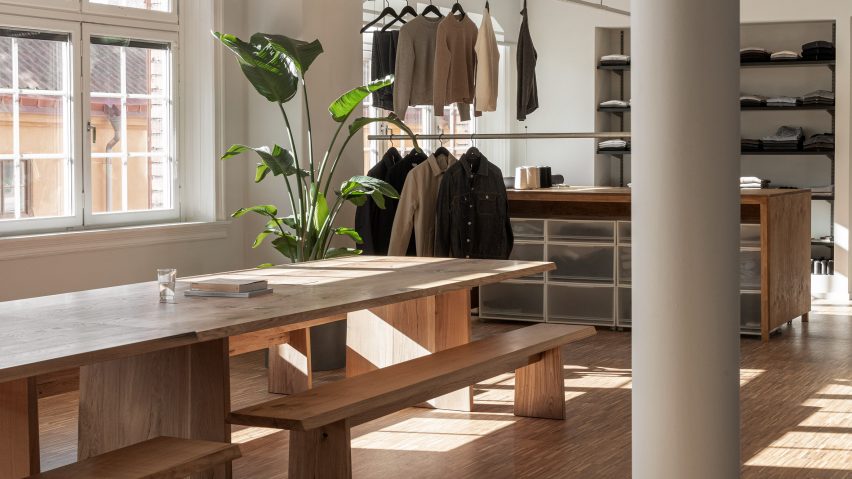
Oak furniture and parquet flooring feature in Scandi-style Asket office
Swedish studio Atelier Paul Vaugoyeau worked closely with fashion label Asket to design its minimalist office in Stockholm, which features oak wood tables, parquet floors and soft white furnishings.
Atelier Paul Vaugoyeau has transformed a 450-square-metre space on a high street in Södermalm into an office and workshop for fashion retailer Asket.
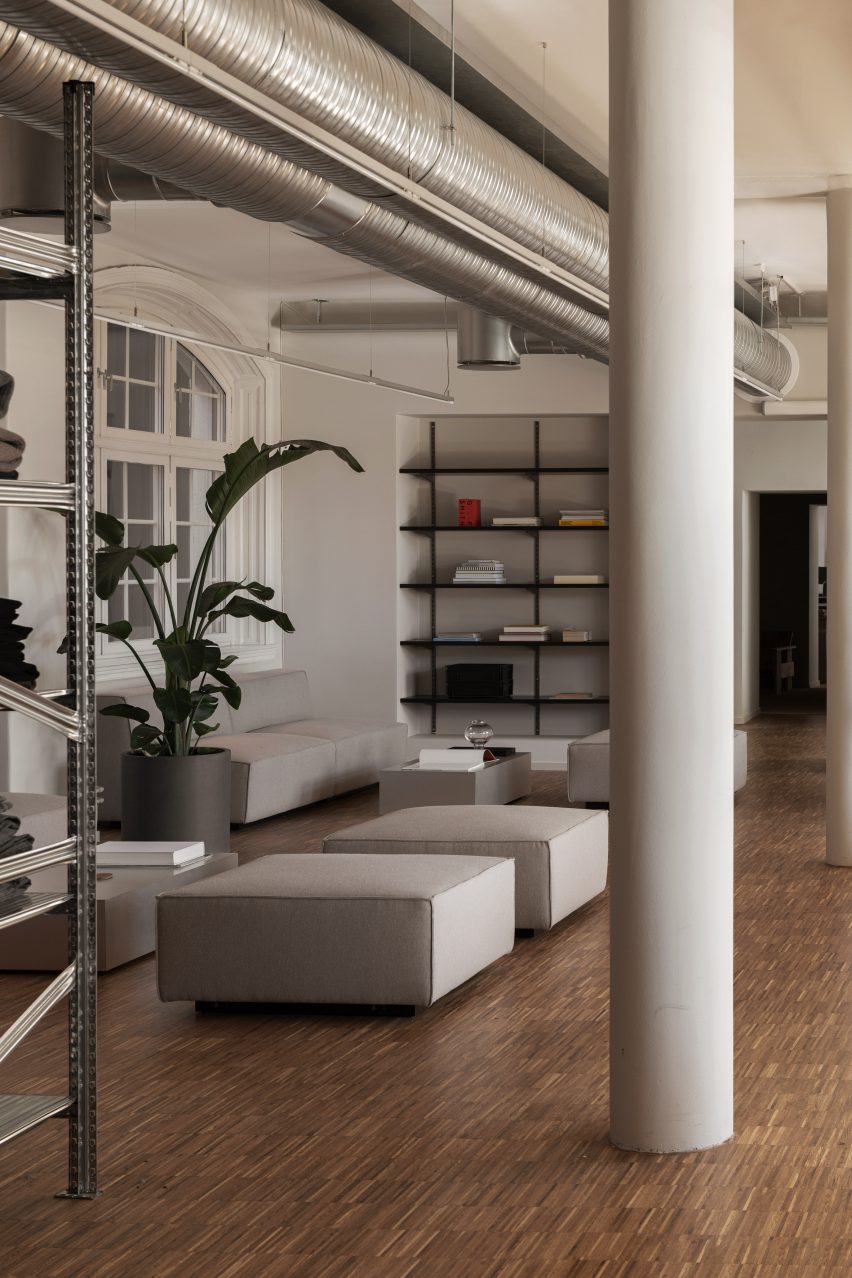
The single-story space, which is located within an 18th-century building, was previously occupied by two separate offices that had been divided up into several small rooms.
The aim of the renovation project was to celebrate the character of the existing building and pay homage to its "industrial roots".
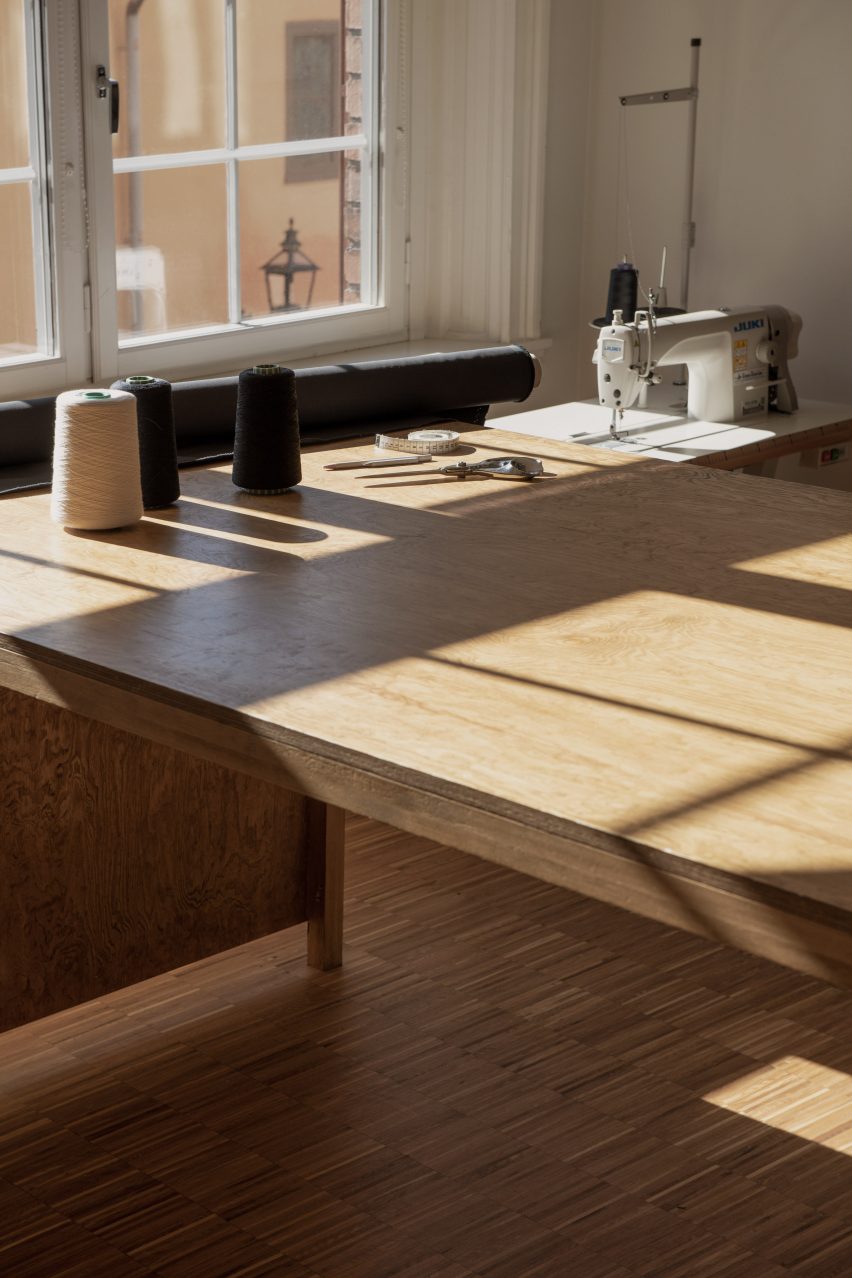
"We wanted to ensure that the design honoured the building's original industrial roots," said co-founder of Asket August Bard-Bringeus.
"The new headquarters is located in an old industrial building from the 18th century which is typical for the district of Södermalm – the former working-class quarter of Stockholm," he told Dezeen.
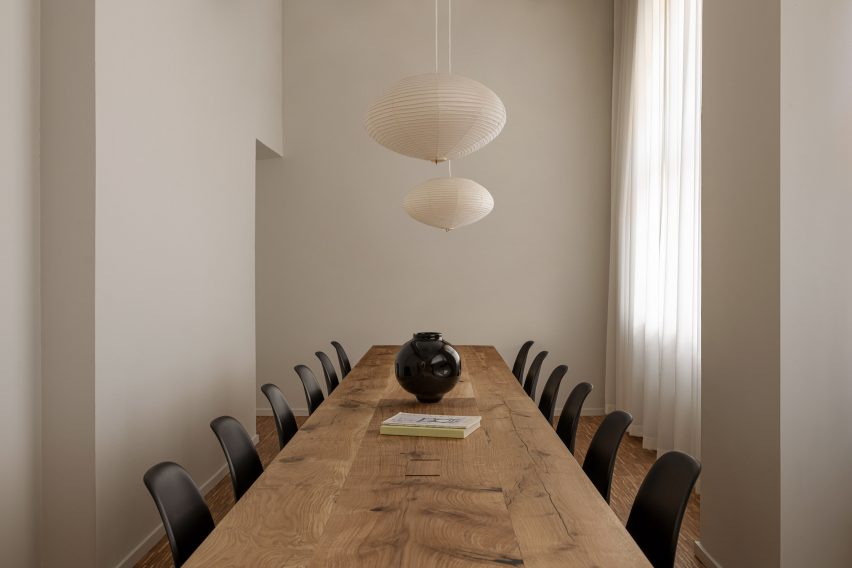
Bard-Bringeus decided to create a workspace where the fashion label's employees could meet but also work on new designs for its clothing range.
The renovated open-plan office consists of a meeting room, a small kitchenette and a designated workspace, which is stocked with tools such as sewing machines and materials to help them design and develop new garments.
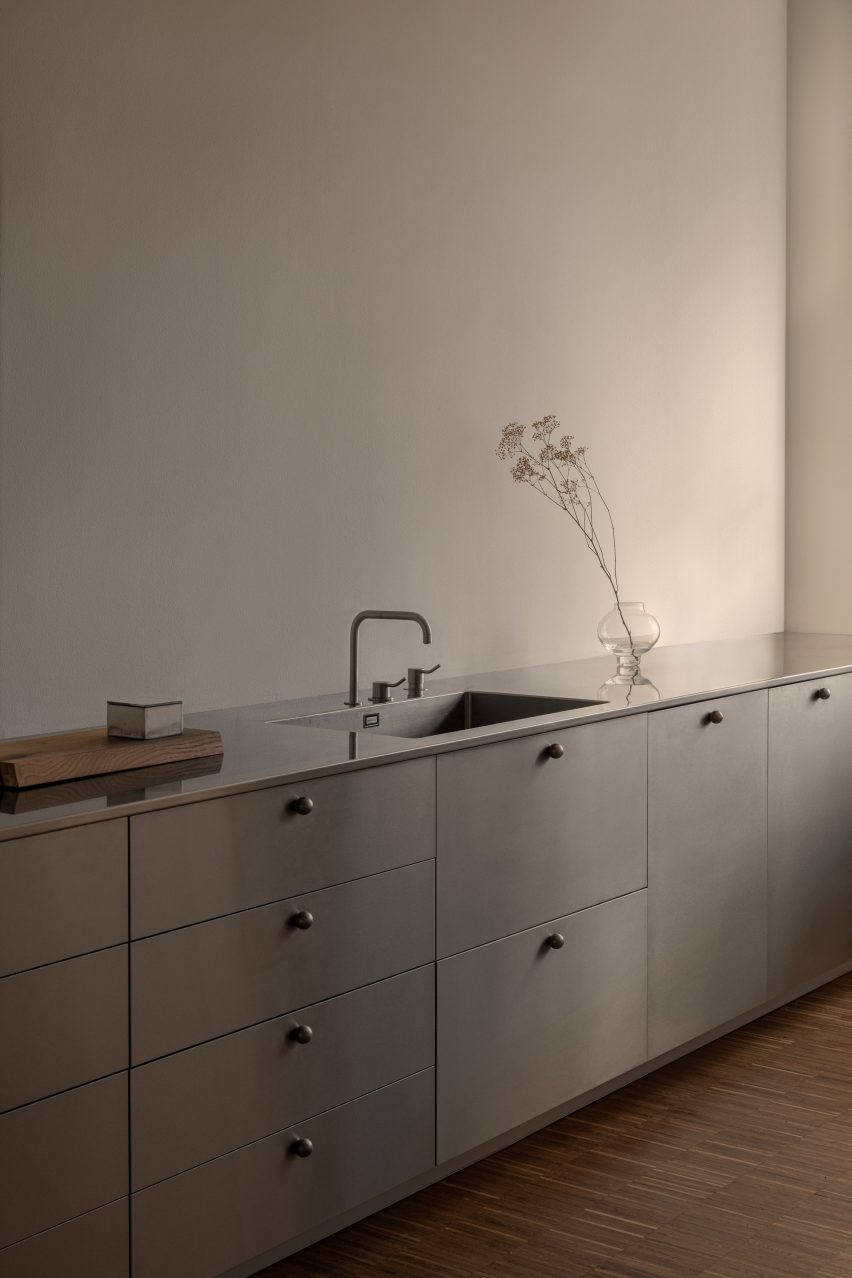
In an effort to embrace the building's original features, the team chose to strip back the interiors, leaving the original parquet flooring and metal pipes exposed.
"I’ve always been drawn to the functionalist design movement," Bard-Bringeus explained. "The work of Dieter Rams was a formative influence – and especially his approach to involve as little design as possible. "
"So we followed this doctrine and stripped back the space, consisting of two offices with different identities, to its structural foundation."
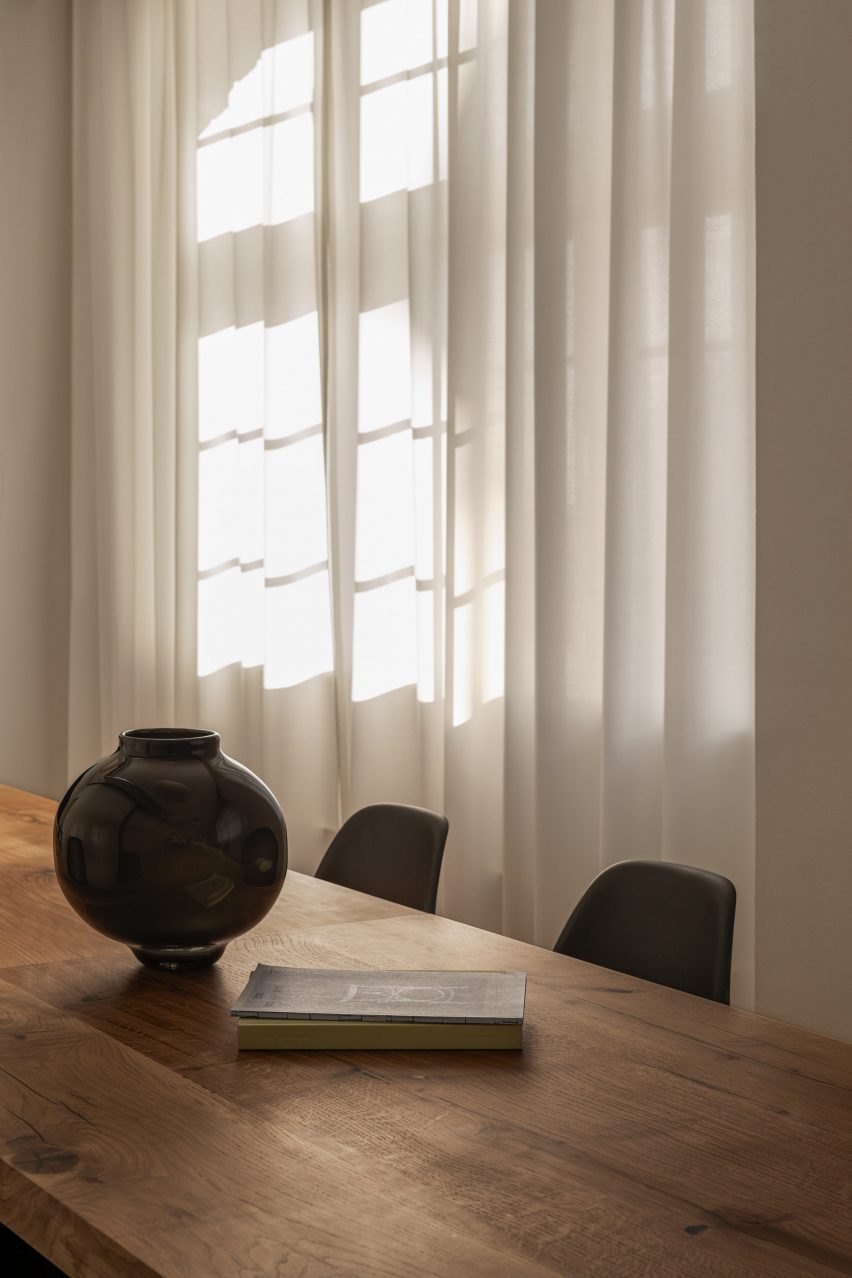
Large tables custom made by Paul Vaugoyeau were installed in the middle of the main office space, as well as in the meeting rooms and dining area.
Designed to promote collaboration, the tables are made from oak wood that was sourced in Nyköping – a municipality south of Stockholm.
The studio hoped that the material, which is commonly used in Scandi interiors, would make the office feel timeless.
"What has proven to stand the test of time is the tactile beauty of natural materials," said Bard-Bringeus.
"We worked with a lot of wood which lends a natural warmth to the industrial features, balancing out the lustre from metallic fixtures," he continued.
"Instead of changing the given space, we worked with what was here and used natural, long living materials, such as metal and oak wood for a timeless design that will last and last."
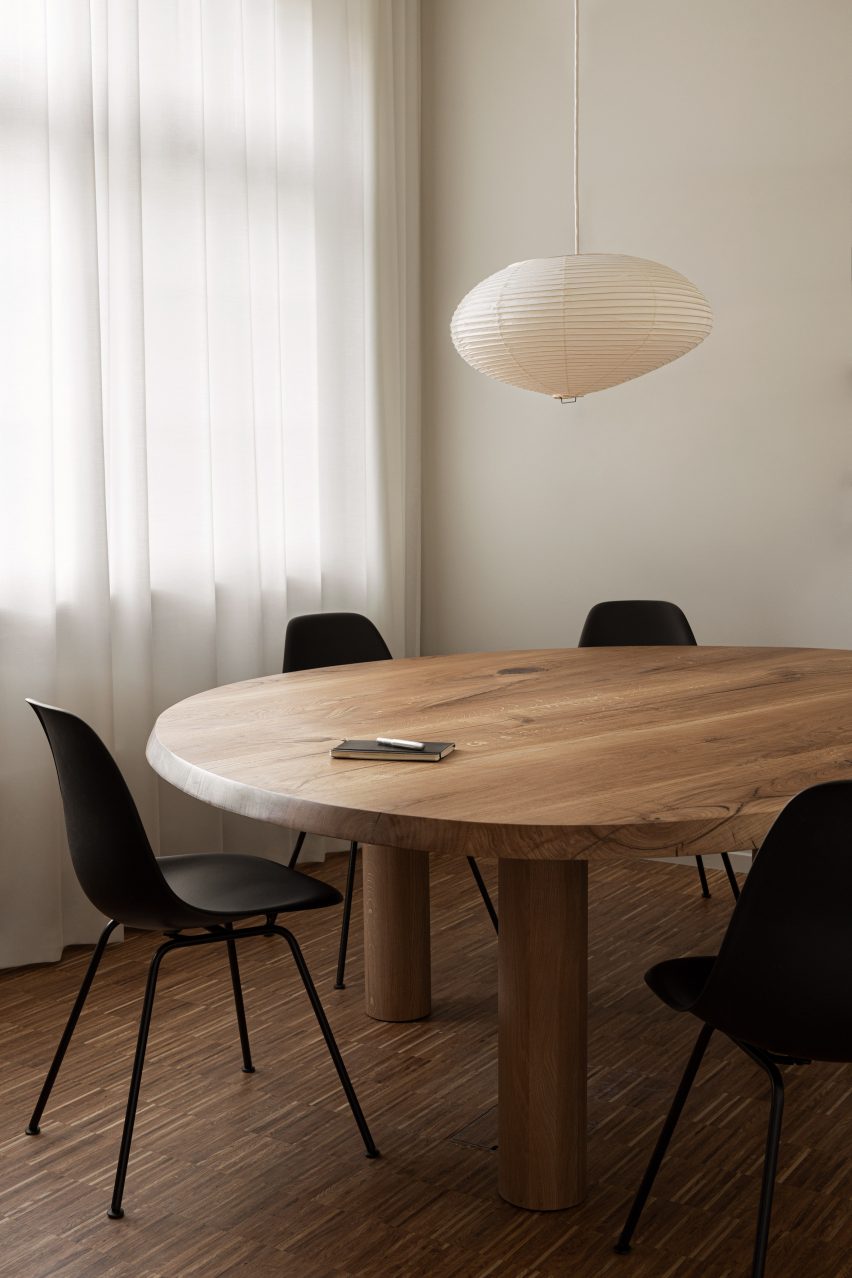
The Asket office benefits from plenty of natural light through multiple large windows that provide generous views of the nearby Baltic Sea and the town.
To amplify this and make the space appear larger, Bard-Bringeus and Atelier Paul Vaugoyeau cast the walls in muted tones such as brown and beige, while translucent cream curtains provide privacy in the two large working areas.
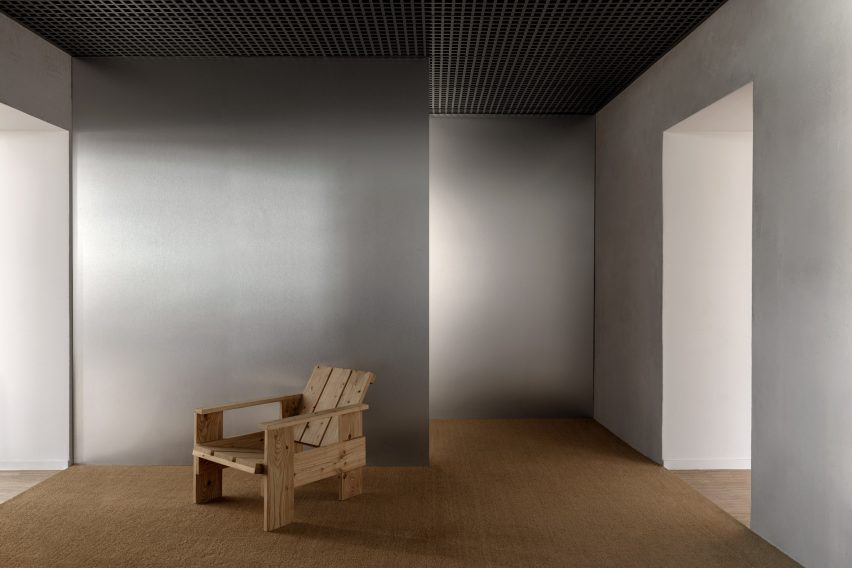
Scandi is a term used to describe designs from Denmark, Sweden and Norway – but has also become a buzzword for minimalist interior design that uses plays with tactile, natural materials.
Other offices that exemplify Scandi design include Danish brand Menu's showroom, office cafe and in Copenhagen, which was designed by Norm Architects and Norm Architects' stripped-back workspace for Kinfolk magazine in Copenhagen.
The photography is by Erik Lefvander.